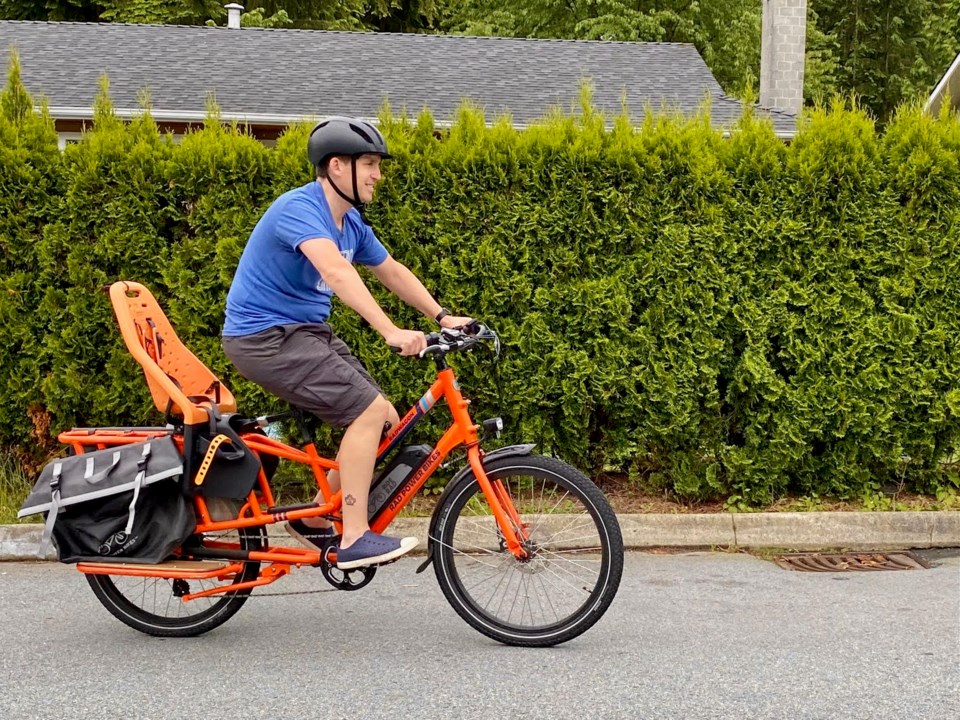North Vancouver residents who want to buy, but have so far been unable to afford, an electric bike or mobility aid might soon have some help as the district voted Monday night (April 25) to move ahead with an incentive plan for low-income residents.
The move comes as council directed staff late last year to look into the feasibility of such a scheme, similar to incentive programs that have been implemented in other B.C. municipalities, like the District of Saanich and City of Nelson.
The program, which is slated to begin in Quarter 1 of 2023, will be targeted towards median-to-low-income earners in the district, who will then be eligible for an incentive between $400 and $1,600, determined by household size. The total cost of the program is budgeted to be $135,000, inclusive of administration costs, allowing 100 households access to the program.
According to the district, and determined by Statistics Canada, a low-income earner in the district begins with a one-person household earning an income of $22,060 (after taxes) or less, and a family of four with a household income of $41,710 (after taxes) or less.
E-bikes, e-tricycles and electric front-drive wheelchair attachments will all fall under the mobility aids available for the program, however conversion kits and pre-owned equipment will not be eligible for the incentive.
In supporting the motion, Coun. Jordan Back said he really likes that the incentive program is focusing on low-income residents.
“I think that's where we can really make an impact and be able to provide mobility options that some residents do not have the financial ability to afford,” he said. “I [also] like that we're including other adaptive mobility devices, such as the electric attachments for wheelchairs.”
Staff noted that people who are part of the incentive will be welcome to register their trip data, so staff and council can assess the effectiveness of the program.
“That is really an important element of this whole thing, is to see how we can change people's ways of getting around and utilizing something like an e-bike or one of these adaptive mobility devices,” Back said. “E-bikes, as I've said all along, are real game changers when it comes to moving people around, and in different ways, and I think this has the potential to support residents, to support businesses … [to] change the way they commute.”
Coun. Mathew Bond reiterated the possible impact an incentive like this may have on low-income earners.
“Transportation costs, especially the costs of owning and operating a vehicle, insurance, and fuel now more than ever, take a very significant portion of the incomes of people in our community, and across the region,” he said.
However, both Coun. Betty Forbes and Mayor Mike Little voted against the incentive, with both believing the provincial and federal governments should be paying for an incentive program like this.
“Giving a onetime benefit to 100 people in our community, versus what would amount to about 30,000 to 50,000 trips on the bus if we were to do this with a fair saver card, or other ways to support people to get into an alternate mode of transportation, I think it can be much more effective or safer program … rather than supporting what is essentially still a luxury item in our community,” Little said.
Little also noted that under the staff recommendation, there’s no way to determine whether someone will be using the equipment for commuting or for recreation, something which would directly impact the number of cars taken off the road.
The incentive program will come back to council at a later date for council to finalize.


.jpg;w=120;h=80;mode=crop)
